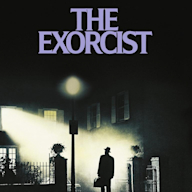Search results
The day before the saintly celebration became known as All Hallows Eve, or Halloween. Though the holiday began in Celtic regions of Ireland, the United Kingdom, and France, it quickly spread to other parts of the world.
Nov 1, 2020 · Halloween comes from an ancient pagan festival celebrated by Celtic people over 2,000 years ago called Samhain, meaning "summer's end." They believed the festival was a time when the dead...
Oct 31, 2010 · Pronounced sow-in, Samhain is a Gaelic word meaning 'end of the summer'. This festival is believed to have been a celebration of the end of the harvest, and a time of preparation for the...
Oct 21, 2019 · Samhain. Halloween traditions in the West date back thousands of years to the festival of Samhain (pronounced 'Soo-when', 'So-ween' or 'Saw-wen'), the Celtic New Year's festival. The name means "summer's end", and the festival marked the close of the harvest season and the coming of winter.
Oct 26, 2021 · Soon after, All Saints Day came to incorporate some of the traditions of Samhain. The evening before All Saints Day was known as All Hallows Eve, and later, Halloween. Here is a look at the origins of some of the classic Halloween traditions we know today.
Jun 23, 2022 · Defined by the Oxford English Dictionary as the eve of All Hallows’ or All Saints’ Day, the origin of the word "Halloween" is somewhat of an evolution. According to Kelly, the name comes from a...
Apr 6, 2018 · October 31 became known as All Hallows Eve, or Halloween, and contained much of the traditional pagan practices before being adopted in 19th-century America through...


